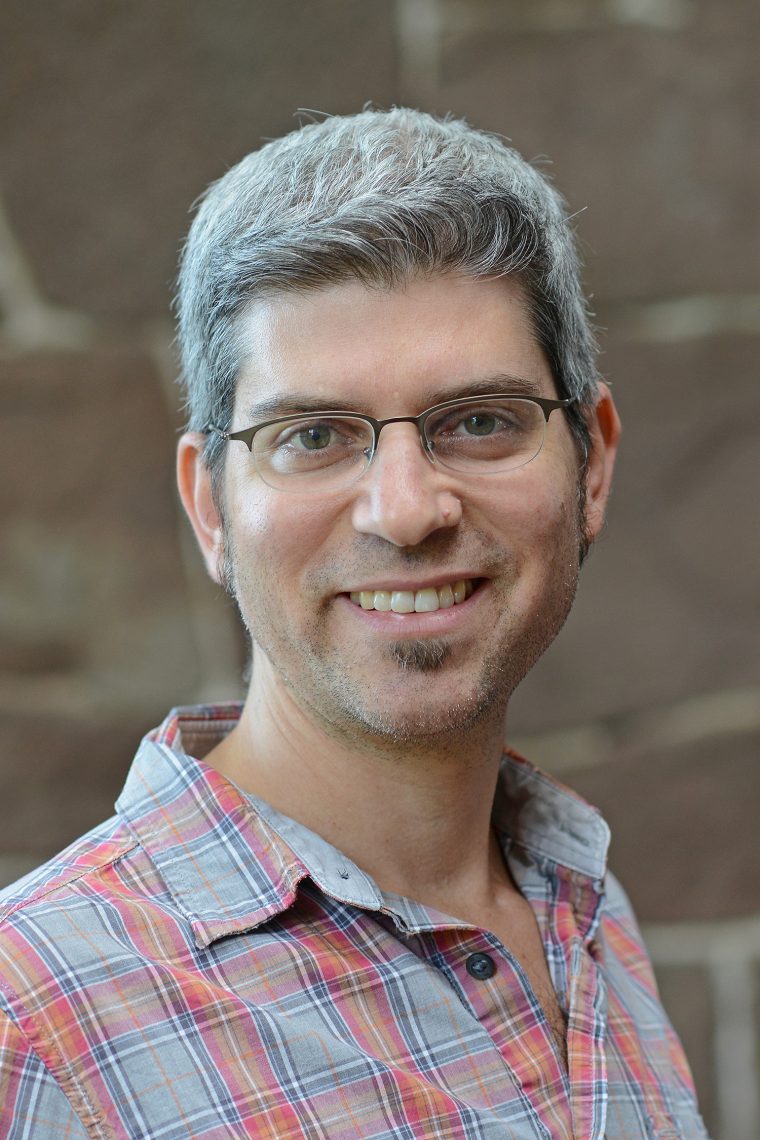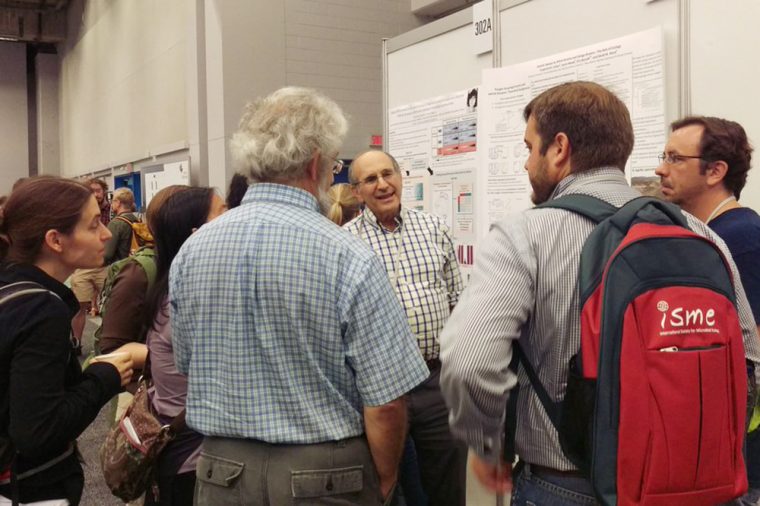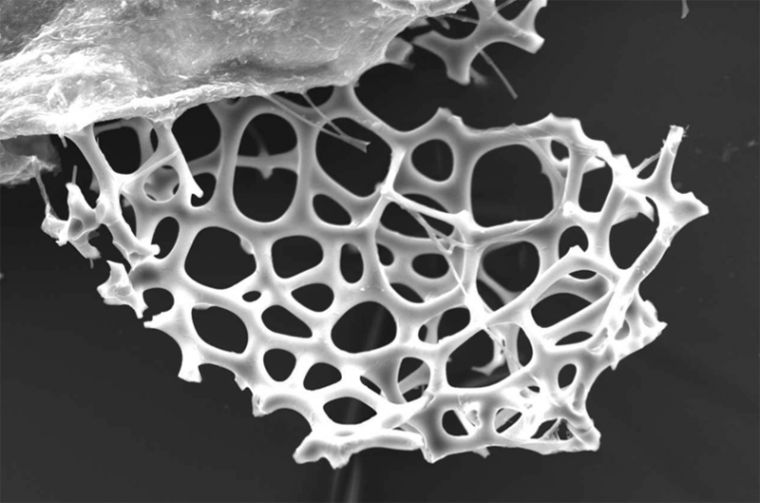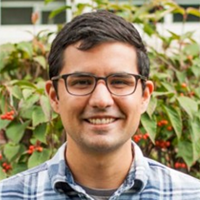In human beings, the cerebellum occupies only 10 percent of the brain volume, yet has approximately 69 billion neurons; that is 80 percent of the nerve cells in the brain. In the book Evolution of the Cerebellar Sense of Self, published by Oxford University Press in January, co-authors David Bodznick and John Montgomery use an evolutionary perspective to explain cerebellar research to a wide audience. Bodznick is professor of biology, professor of neuroscience and behavior at Wesleyan, and Montgomery is professor of biology and marine science at the University of Auckland in New Zealand. The cerebellum first arose in jawed…
Sonia Sultan, professor of biology, professor of environmental studies, was a guest speaker at the “New Trends in Evolutionary Biology: Biological, Philosophical, and Social Science Perspectives,” conference hosted by The Royal Society, London held Nov. 7-9. The international event, in an effort to encourage cross-disciplinary discussion, brought together researchers from the humanities, sciences and social sciences to examine the many “developments in evolutionary biology and adjacent fields, which have produced calls for revision of the standard theory of evolution.” As part of the conference, Sultan spoke about “Developmental Plasticity: Re-conceiving the Genotype,” a topic which examines the possibility of “re-conceiving the genotype…
A book titled Organism and Environment (Oxford University Press, 2015) by evolutionary ecologist Sonia Sultan, professor of biology, professor of environmental studies, has been shortlisted for the Royal Society of Biology Award for Best Post-graduate Textbook.The winner will be announced later this month. In addition, Organism and Environment was named a "landmark volume" in Trends in Ecology and Evolution, and reviews are forthcoming in BioScience, Ecology, Evolution and Biology and Philosophy. In November, Sultan will speak about her research on developmental plasticity at the New Trends in Evolutionary Biology: Philosophical and Social Science Implications symposium held jointly by the Royal Society and the British Academy. Sultan is…
Mike Singer, professor of biology, professor of environmental studies, received a three-year grant from the National Science Foundation this month to support a study on habitat fragmentation. Fragmentation occurs when contiguous habitats become separated into smaller, isolated areas often caused by human activities (new roads, housing developments) or natural processes (flooding, drought). Singer and his colleagues will study the effect of anthropogenic forest fragmentation on the food web of plants, herbivores, and carnivores (tri-trophic interactions) in Connecticut. The project will focus on relationships among deer, trees, caterpillars, and songbirds. The grant, which will be awarded over three years, is shared with…
Frederick Cohan, professor of biology, professor of environmental studies, presented his research poster, "Genetic Sweeps by Whisk Brooms and Garage Brooms — the Role of Ecology" at the 16th annual International Symposium on Microbial Ecology, held Aug. 21-26 in Montreal. Cohan presented his models on the origins of bacterial species, in particular that the rate a bacterial group forms new species is determined by the foods it consumes. Microbial ecology is the study of microbes in the environment and their interactions with each other. The International Society for Microbial Ecology is the principle non-profit scientific society for the burgeoning field of microbial ecology and its…
This summer, Stephen Devoto, professor of biology, professor of neuroscience and behavior, launched the inaugural Wesleyan Scientific Imaging Contest. The contest, which recognizes student-submitted images from experiments or simulations done with a Wesleyan faculty member that are scientifically intriguing as well as aesthetically pleasing, drew 35 submissions from the fields of physics, biology, molecular biology and biochemistry, psychology, earth and environmental science, chemistry and astronomy. Participants submitted an image along with a brief description written for a broad, scientifically literate audience. The entries were judged based on the quality of the image and the explanation of the underlying science. The first-place prize went…
Janice Naegele, professor of biology, professor of neuroscience and development, is the co-author of a new paper titled, "Convulsive seizures from experimental focal cortical dysplasia occur independently of cell misplacement." It was published in Nature Communications on June 1. Brain malformations called focal cortical dysplasia are typically formed during human embryonic cortical development and are a common cause of drug-resistant epilepsy and cognitive impairments. One of the causes of cortical dysplasia is improper migration of developing cortical neurons. Failure to reach their correct destinations in the cerebral cortex and dysregulated growth leads to the formation of growths or tubers in regions of…
In its recent meeting, the Board of Trustees conferred tenure on four faculty members. They are Associate Professor of Government Erika Franklin Fowler, Professor of African American Studies Kali Gross, Associate Professor of English and American Studies Amy Tang, and Associate Professor of Chemistry Erika Taylor. They join eight other faculty members who were awarded tenure earlier this spring. One faculty member, Louise Neary, was promoted to adjunct associate professor of Spanish. In addition, six faculty members are being promoted to full professor: J. Kehaulani Kauanui, professor of American Studies and anthropology Matthew Kurtz, professor of psychology Cecilia Miller, professor of…
Four Wesleyan academic departments, from psychology to dance to chemistry to biology, are competing for grant funds through a new crowdfunding site specifically designed for research project fundraising. Experiment.com's Challenge Grant for Liberal Arts Colleges asked scientists to define a scientific research question for the crowd with a prize for the project with the most backers. The pilot launched on Feb. 24 and concludes March 25.During this 31-day period, the goal is to reach $4,000 in funding. If so, the team is granted the money. If not, they receive nothing and no one's pledges are charged. By backing a project, participants will receive updates, results and data from project creators. Wesleyan research include how the…
A high school student from New York, who is mentored by a faculty member and a graduate student in Wesleyan's Neuroscience and Behavior Program, is one of the top four finalists for the Neuroscience Research Prize, awarded by the American Academy of Neurology and the Child Neurology Society. As a recipient of the prize, Armonk, N.Y. resident Ryan Infante will receive a $1,000 cash prize and per diem for expenses at the 45th Annual Meeting of the Child Neurology Society in Vancouver, B.C. in October 2016. He will present his stem cell transplantation research during the Child Neurology Society meeting. Infante,…
PhD candidate in biology Jacob Herman received a V. Dropkin Postdoctoral Fellowship to research the epigenetics of plant response to pathogen infection at the University of Chicago’s Department of Ecology and Evolution. The V. Dropkin fellowship funds a postdoctoral researcher for up to four years to study the ecology and evolution of plant-pathogen interactions. Herman will begin the post-doctoral position after completing his dissertation defense this April. His advisor at Wesleyan is Sonia Sultan, professor of biology, professor of environmental studies. (more…)
Sonia Sultan, professor of biology, professor of environmental studies, is the author of Organism and Environment: Ecological Development, Niche Construction, and Adaptation, published by Oxford University Press (London and New York) in November 2015. Organism and Environment is an authoritative graduate textbook of ecological development ('eco-devo') set in the context of diverse natural systems. The book explores how niche construction contributes to ecological interactions and evolutionary dynamics and includes detailed case studies showing how regulatory mechanisms lead to plastic eco-devo responses. Sultan worked on the book for the past six years, including a year spent on a fellowship at the Institute for Advanced…







